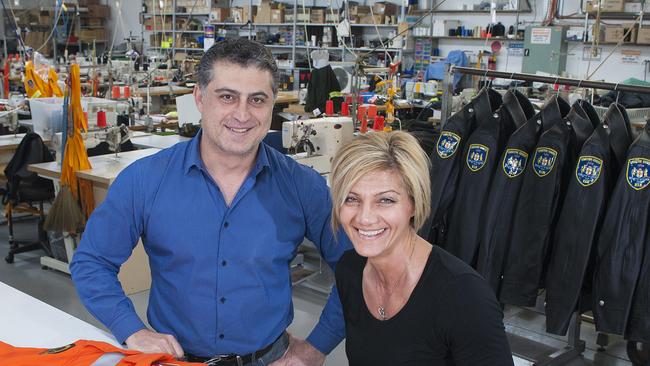Touching on a tender subject: Experience, and understanding the protocols, are key to government contracts
IN government contract work, the red tape can be more onerous than working with private enterprise and the competition for tenders can be hot.

SOME businesses specialise in government-based contracts. The idea being that government is — eventually — the most reliable payer of all. But the truth is: it’s not that easy to get government work. The red-tape can be more onerous than working with private enterprise and the competition for the tendered work can be hot.
The beauty of government work is that it can provide a bedrock of business if your industry experience lulls, either through annual fluctuations or through the economic cycle.
There are a few places to head to gain information about obtaining government work, but at some stage you will end up at www.tenders.gov.au, where you will need to register in order to find out which Government jobs are coming up.
A better start is to go to the Finance Department’s site, www.finance.gov.au/publications/selling-to-the-australian-government/ that will show you the guidelines and plenty of tips when trying to get some government work.
At the heart of this is to understand that “value for money is the core principle underpinning Australian Government procurement”. This value for money is achieved by encouraging competition; promoting the efficient, effective and ethical use of resources and for accountability and transparency.
Because government work is so lucrative, it is important that the whole process is not only free from the stench of corruption, but that it is perceived by the business community to be free of any hint of inappropriate behaviour.
To help this, if you miss out on a government tender you can seek a debriefing with the agency to discuss what you could have done to improve your chances next time. Most agencies debrief losing tenderers as a matter of course, but those who lose out can ask for a review. Most in private enterprise would not entertain such conversations.

But the Federal Government sites admit that experience and relationships with certain agencies does play a part in being successful in winning a tender. It is not simply a case that the cheapest bid wins the work. Like any business that outsources work, the government department needs to be confident that you will deliver on specification and on time. That is where business reputation comes from. In many cases professional licences and qualifications will have to be proved before you will be considered for a tender.
Earlier this year the government sought to make it easier for smaller businesses to become involved in tender processes by creating new low-risk grant templates includes a standard set of just 20 terms and conditions compared with regular grant templates that are typically 50 terms and conditions and up to 50 pages.
The other change government created was to make it easier for small businesses to be paid more promptly. In 2012-13 government had more than 835,000 contracts with small business with a guideline of paying invoices within 30 days. Its strike rate was 96.1 per cent — good — but it meant that 32,500 invoices were paid late.
The change means government in future will pay for products and services worth less than $20,000 credit or debit card, giving small business almost instant access to their cash.
But as John Kashro from Workscene says in the accompanying story today — just because you have government work, do not rest. Like many private companies, government is also outsourcing many of its functions overseas to take advantage of reliable supply of goods and cheaper prices.
WORKING people need working clothes. But John Kashro is living proof how tough the game of supplying them is. For 37 years his company Babylon Industries has been manufacturing and supplying working clothes for Australians. His sister Janet looks after the production.
Babylon moved into government work during the 1980s and 90s when other contracts dropped off.
It was successful, gaining contracts to supply clothing for the NSW and Queensland Police Forces, the Australian Defence Forces and the SES. To win that work he pushed hard and spent $20,000 and two years gaining ISO 9000 standards (globally recognised quality standards).
But despite the success, Kashro recognised a problem for the business. More than 80 per cent of his work was from just two or three major customers. If something changed, he was vulnerable. And something did change.

Government work, he says, is no longer a safe haven. He cites the NSW Police force which, about four years ago, had a $9 million annual clothing budget, 90 per cent of it spent on domestic products. “Now that budget is $6 million a year and 90 per cent of it is imported and 10 per cent of it is locally produced.”
So John took a risk. He moved into retail, creating the business Workscene. “We have grown the retail arm to give us the diversity and so we are not solely reliant on manufacturing. But by doing this we can sustain manufacturing, which is extremely fickle.”
Workscene has eight retail stores — Liverpool, Fairfield, Parramatta, Bankstown, Blacktown, Narellan, Campbelltown, Sutherland Shire, The Hills District and Tempe. It stocks brands including Hard Yakka, King Gee, CAT, Bisley, Huski and Stubbies.
This is where John Kashro sees his future. “Safety boots are about 30 per cent of what we sell. If it’s a hi-viz shirt, it doesn’t matter if it’s high end. But when it comes to trousers and feet its incredible how much loyalty to brand there is.”
Like business, when it comes to trousers and boots, flexibility is all important.
Originally published as Touching on a tender subject: Experience, and understanding the protocols, are key to government contracts


 Because government work is so lucrative, it is important that the whole process is not only free from the stench of corruption, but that it is perceived by the business community to be free of any hint of inappropriate behaviour.
Because government work is so lucrative, it is important that the whole process is not only free from the stench of corruption, but that it is perceived by the business community to be free of any hint of inappropriate behaviour. 

